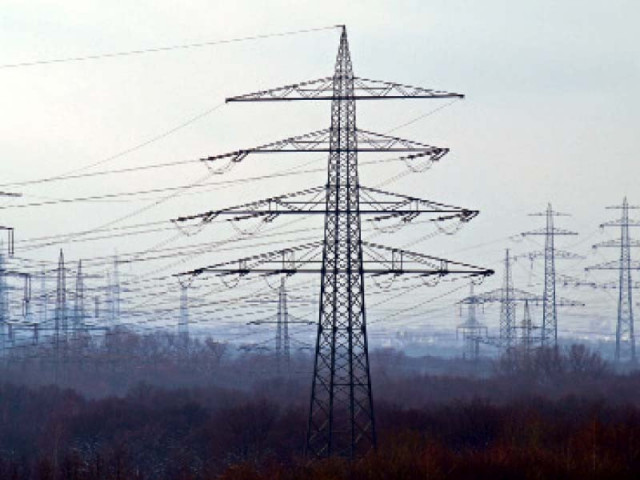Subsidy allocation increased to Rs682 billion
Large chunk of relief will go to power sector

The government has increased the amount of subsidies by 58% to Rs682 billion in the federal budget for next fiscal year 2021-22, beginning July, of which a major chunk will go to the power sector.
With the FY22 subsidy allocation, the government expects to provide some cushion for consumers of electricity, metro bus, wheat operation and stocks, fertiliser plants, the Naya Pakistan Housing Authority and the Ramazan package.
However, it cannot be said with certainty whether the government will be able to keep itself within the subsidy ceiling or overshoot the target, as has happened in the outgoing year.
According to the Budget Book released by the government on Friday, the payment of subsidy has been estimated at Rs682 billion for the next fiscal year, which is 226% higher than the budgeted figure for the ongoing year.
The government had allocated Rs209 billion in subsidy for the current fiscal year, down 23% compared to a year earlier. However, it has swelled to Rs430 billion according to revised estimates in the budget.
Read: Water and power supply situation shows improvement
In the current fiscal year, the projection has been revised upwards because of the grant of subsidy worth Rs46 billion to Power Holding Private Limited (PHPL) and increase in subsidy on agricultural tube wells from Rs3 billion to Rs7 billion.
Similarly, the subsidy for Water and Power Development Authority (Wapda) on account of tariff differential in Azad Jammu and Kashmir (AJK) surged from Rs1 billion to Rs27 billion in the current fiscal year. Subsidy for Wapda/Pepco receivables in merged districts of Khyber-Pakhtunkhwa (K-P) went up to Rs15 billion against the budget allocation of Rs10 billion.
Inter-distribution companies (DISCOs) tariff differential subsidy also increased from Rs110 billion to Rs191.8 billion, according to revised estimates for the ongoing fiscal year.
Initially, the government had not allocated any subsidy in FY21 on account of tariff differential for AJK, but later it earmarked Rs36.5 billion in the revised estimates.
Overall, the government had made a subsidy allocation of Rs124 billion for Wapda/Pepco for the ongoing fiscal year, which went up to Rs350.3 billion under the revised estimates.
In the next fiscal year, the government has earmarked an overall subsidy of Rs511 billion for Wapda/Pepco.
A subsidy of Rs118 billion will go to PHPL while agricultural tube wells in Balochistan will receive Rs4.4 billion. An allocation of Rs7.6 billion has been made for Wapda receivables in ex-Fata, Rs18 billion for Wapda/Pepco receivables in merged districts of K-P, Rs184 billion for inter-DISCOs tariff differential, Rs15 billion for industrial support package and Rs26 billion for the zero-rated industry.
In the FY22 budget, the overall subsidy for Wapda and Pepco comprises a major chunk of the total allocation.
It is followed by the subsidy for K-Electric that amounts to Rs56 billion for tariff differential and Rs22 billion for its industrial consumers.
In the outgoing year, the government had initially allocated Rs10 billion subsidy for K-Electric tariff differential, which was increased to Rs16 billion under the revised estimates.
A subsidy of Rs20 billion has been set aside for the petroleum consumers. Of this, Rs10 billion will be given for provision of liquefied natural gas (LNG) at discounted rates to the industry and Rs10 billion will be provided to cover liabilities of PSO and APL.
In comparison, the subsidy allocation for the petroleum sector stood at Rs10 billion in FY21, which was later revised upwards to Rs12 billion.
Read more: No hike in power tariff, new taxes, IMF told
Essential goods
The subsidy cushion for Pakistan Agricultural Storage and Services Corporation (Passco) has been put at Rs7 billion for FY22. Of this, Rs2 billion has been set aside for Passco’s wheat operation and Rs5 billion for keeping wheat stocks.
Utility Stores Corporation will receive a subsidy of Rs6 billion in the next fiscal year compared to the revised subsidy of Rs8 billion in the current year.
The government has earmarked Rs53 billion in subsidy for wheat sales to Gilgit-Baltistan, metro bus, fertiliser plants and the Naya Pakistan Housing Authority. It is Rs3.5 billion higher than the allocation of Rs49.5 billion this year, which has dropped to Rs36.6 billion under the revised estimates.
Of the Rs53 billion allocation, Rs30 billion has been set aside for the Naya Pakistan Housing Authority, which is engaged in building housing units for the low-income class. Apart from this, Rs1 billion has been earmarked for the metro bus.
However, the government did not make any allocation for the agriculture sector. It had allocated Rs9.5 billion for the fiscal package, Rs615 million for white fly pesticides, Rs1.05 billion for the PM package for Rabi crops and Rs4 billion for agricultural loans for the farmers during the ongoing fiscal year.



















COMMENTS
Comments are moderated and generally will be posted if they are on-topic and not abusive.
For more information, please see our Comments FAQ